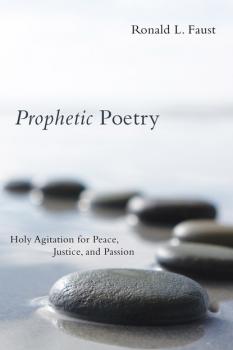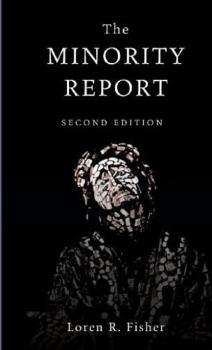Биология
Различные книги в жанре БиологияThough One Go with Me
Though One Go With Me is the sequel to Pastor Blackstone's first book, Though None Go With Me, which retraces the steps of a Maine pastor back to the fabled land of India. This time the 'one' is the pastor's daughter, Marnie. Travel along as Blackstone introduces his daughter to her first taste of hot, spicy foods, an auto-cart ride, playing with elephants, and traditional Malayalam dress. Once again journey through the State of Kerala on a Sunday Safari into the tea mountains of India, take a sunset stroll along the sands of Kovalam Beach, and enjoy the uniqueness of wearing a pepper necklace around your neck and eating with your fingers. Witness and wonder as Marnie drinks coconut milk straight from the shell, goes on a shopping spree for a beautiful sari, enjoys the smell of a jasmine and rose myla, and experiences the G-Mart (India's version of Wal-Mart). The purpose of this second trip to Edyappara was to be graduation speaker at Kerala Baptist Bible College, where the pastor had taught for 40-days on his first trip, and to deliver a half a million rupees to a small congregation in Venmony so they could start building a church sanctuary and parsonage. Relive the adventures of a father and daughter as they trek through a tropical paradise filled with hospitable people, amazing animals, and breath-taking scenery in their own version of 'The Amazing Race'!
My Father’s Love
David Bray lives in Chicago in a Christian community called Jesus People USA. His first book, Marduk, a science fiction story, was co-authored with Tom Fulghum. His second book, My Father's Love, records the struggles and blessings of growing up and dealing with the loss of his dad, John Bray, a pastor, teacher, and dean of North Park Seminary in Chicago, Illinois. This story of a father's love for his son will encourage anyone struggling with the loss of a loved one, especially the loss of a father. It offers concrete examples of positive relationships for anyone, and especially for families with a disabled child. David's memories of his dad demonstrate the power of love and radiate hope for those who grieve, those with disabilities, families of the disabled, and any parent or child needing reassurance of God's love. David's desire is that the reader will find hope and blessing by reading his story.
Common Ground
Listen closely. Hear the Spirit Song. In good turn, all will come along. Join me in this adventure, as we play in rhythm and rhyme. Explore the hidden places, all in real-time. Let us laugh and cry together, let us be alertly surprised. Come with me, dear brother, let us jointly seek the Prize. These poems come from a special place, one I can little describe. They are meant as gifts, but for a minor fee. I am honored to be the scribe of such wonderful things. I have recorded them here so you may see, all that is given, all that is free. Join me if time allots you so. A gift cannot be without a beneficiary. Pearls must be claimed, to shine. Take a chance, my friend. Let us join the Golden Dance in time.
Prophetic Poetry
This poetry becomes an agent of transformation in offering a new direction for our lives. It provokes a little holy agitation by tossing poems like pebbles into placid pools of water to cause some waves. Such poetry gives us prophetic alerts to pay attention to things that matter, like peace not war, like economic and immigrant justice, like an earthy passion for life more than death.
This book of poems describes a link between poets and peacemakers:
Maybe peacemakers are like insurgent poets, Irrelevant, dissident, disregarding the status quo, Imagining a vision of a world that gets along
This poetry–too dangerous for right wing religion–will offer a resource for church activists and for taking the next step of courage. It will be a companion for marching to a different drummer and hearing the still voice of God amplified through ordinary occasions.
Mystic Twine
Mystic Twine is a voyage into the numinous realm of the mind and spirit, told in the ancient style of the storyteller. Contained within are weird and wonderful tales, mind and spiritual explorations, prayers and callings, and occasionally a glimpse into the author's view of the absurdities of life in the material world. These are very personal poems, told in quiet confidence to those who keep their ear to the spiritual sound and their eyes on the divine landscape. They reflect a journey that we will all take at some point in our lives. Their source is un-nameable, but they come clothed in a confidence born of the certainty of truth; the kind of truth known upon impact, the kind of truth that requires no validation other than the knowing that fills our mind and soul when we encounter it.
I invite you to accompany me on this journey, a voyage that refreshes us all simultaneously. The nature of these ageless odes, in large part, remains a mystery even to me, and I welcome the occasion to explore them with you, my brothers and sisters. I do not write them to sell nor to glorify myself, but rather I pass them on as a sort of divine pact that I have made with their Source. I ask simply that you turn the page and see if they call out to you.
Emerald Mandala
The Emerald Mandala is a spiritual shelter, a sanctuary of sorts. It is a harmony of words and rhymes to take you to far away inner places. Inside you will find fables, prayer, dilemma, and intentional absurdities. Angelic advocates wait to take you on wings widespread and destined for the heavens. Love is discussed, insights appraised, mind and spirit explored. The Emerald Mandala is a journey from which you will return changed, maybe ever so slightly, but changed nevertheless. It will likely provoke you. It may touch your heart. It might leave you mystified or confused, but it will certainly leave you in better thought. Within these emerald walls, we will explore ourselves together, we will challenge our beliefs to see if they endure, and we will pray and hope for similar providence. I ascribe my poems to no particular religion or doctrine. I seek God by any means left to me. There are as many paths back as there are rays of the sun. Join me now and let us ignore our differences, embrace our alikeness, and seek together that we may end up as One. Let the Emerald Mandala transport us beyond the worldly bonds that seek to contain and diminish us. Let it be our mutual conveyance to set our direction, side by side, to the road Home.
Leave the Bones
Between the covers of this tome lay truly wondrous things. Composed of colors previously unseen and sounds rarely heard, these buds will blossom in your hand. As they do, they will burst into light that will illuminate the darkness. As that light reflects upon a table, a feast is seen before us. Take up arms, in spoon and ladle, and prepare to experience ephemeral tastes and aromas never known. So whet your appetites my friends, hone them and apply them to the job at hand. Then join me, if you will, as we feast on these delectable delights. Yet, if you don't mind as much, we'll leave the bones behind.
Praise for J. Michaels [CENTER] "The Poet's Quill is an inspirational uplifting book of poetry that will have readers aspiring to new goals. With over one hundred poems ranging in titles such as 'One Soul To Save,' 'Beauty By The Bay,' 'I Want My Perfection Back,' 'Heaven's Gate,' and many more equally thought provoking, how can one not explore the vast possibilities of this wonderful book of poems. The author, J. Michaels, has reached into the depths of his soul and produced an amazing book that will touch readers' hearts, minds, and souls." –Angela Simmons Member, Reviewthebook.com
Work Useful to Religion and the Humanities
In many ways, the method of comparison in the study of religion is connected to European expansion and empire building. This work explores the early modern origins of the comparative method for the cross-cultural study of religion, beginning with its roots in the earliest missionary contact in the Spanish conquest and concluding with the Victorian anthropologists of the British Empire. Ammon explores the development of the comparative method in religion from the sixteenth through the nineteenth centuries, approaching the history of comparison by tracing its development from the first moments of contact with the New World through the recognized origin of the discipline of anthropology. This work delineates the comparative method from Bartolome de Las Casas to Edward Burnett Tylor, exploring a piece of the story we can tell about the development of the comparative methods and religious transformation in the disciplines of anthropology, ethnology, and comparative religion.









